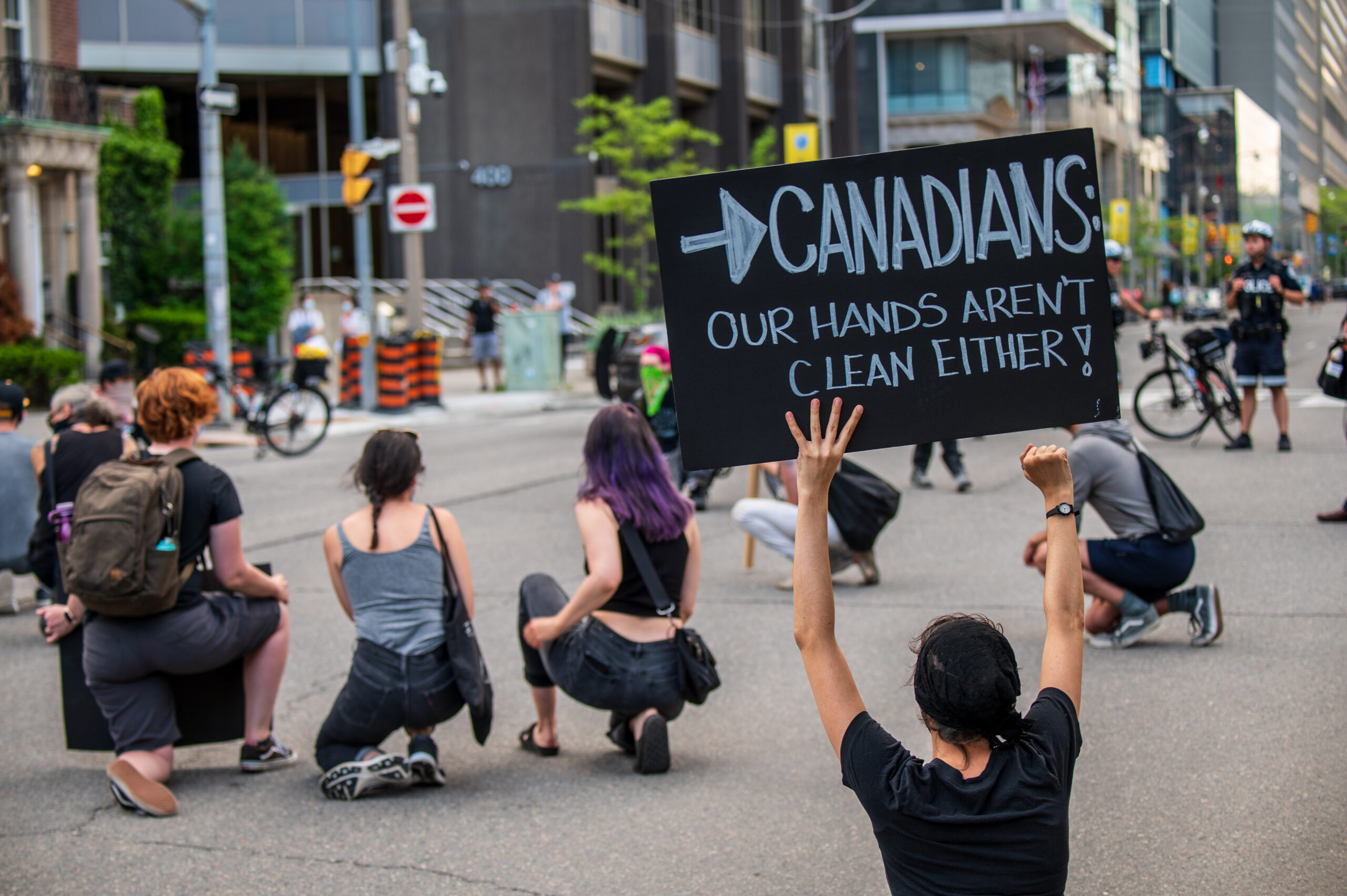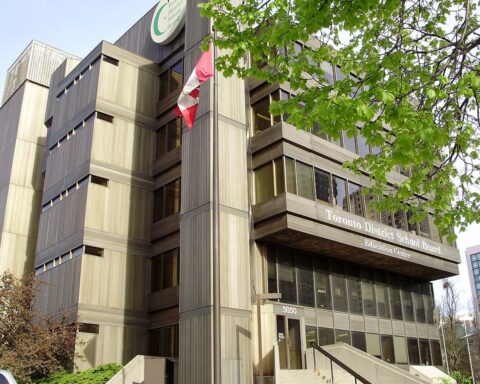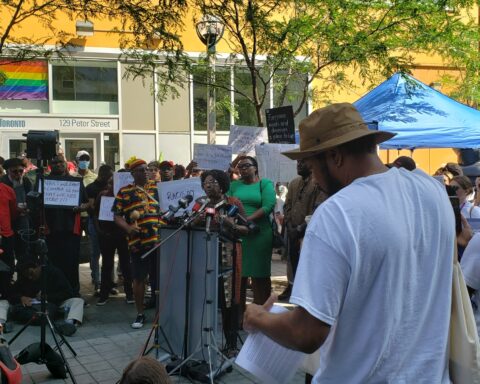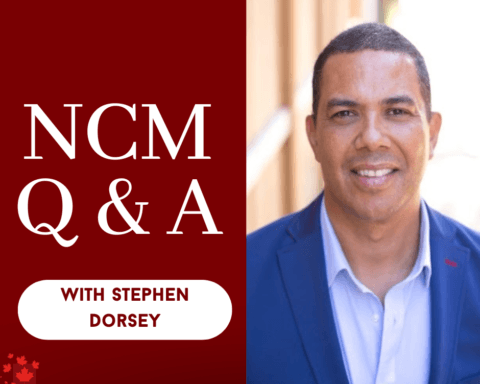A first-of-its-kind research project designed to examine how racism affects Canadians aims to create effective strategies for combating systemic racism.
The Black Canadian National Survey, conducted by York University’s Institute for Social Research, and in partnership with the Canadian Race Relations Foundation, explores people’s experiences with racism, focusing on institutions like childcare, education, healthcare, employment and the justice system. The overarching goal of the survey, and the organizations involved, is to eradicate racism and promote “harmonious race relations.”
Survey respondents indicated that they’d like to see policy changes to address systemic racism in the form of educational opportunities for Black people, opportunities for capacity building in Black-led businesses and organizations, amending the Police Service Act to enable watchdogs to penalize racist conduct, creating educational systems to help eliminate racism, and to ensuring diverse representation in the hiring/decision-making process.
Over 5,000 people, racialized and non-racialized alike, from different regions across the country responded to the survey between March and May this year. Of all the different ethno-racial groups surveyed, at least 80 per cent of respondents said racism is a problem where they live.
The survey’s objective was to specifically study systemic anti-Black racism and explore the experiences of Black Canadians nationwide. The disaggregated data can then be used to find evidence-based strategies.
Black people are often conflated with other visible minority groups in surveys. Visible minorities are defined as “persons, other than Indigenous peoples, who are non-Caucasian in race or non-white in colour.”
Racism at Work
Work plays a big role in people’s lives and it connects to many aspects of life. According to Natasha Henry, an expert in the African diasporic experience and the president of the Ontario Black History Society, “employment helps to determine quality of life and access.” Henry is also an author, historian, educator, and curriculum consultant.
The study revealed that Black Canadians were more than twice as likely to report racism as a serious problem in the workplace than any other ethno-racial group.
When it came to the topics of hiring, pay and promotion, 48 per cent of Black respondents said they were treated unfairly during the last 12 months. Comparatively, 28 per cent of non-white people, 24 per cent of Indigenous people, and 16 per cent of white people gave the same response.
A 2018 study by the Ontario Human Rights Commission noted that having low-income work is one of the inter-generational effects of colonialism, slavery and racism. It’s also a major contributing factor in child welfare’s involvement with Indigenous and Black children. Henry argues that Black people’s unique relationship to labour continues to shape their lives.
“When we look at the very particular history of Black people and people of African descent in the Americas, our initial introduction here was as coerced labour,” she said.
Black people’s relationship to labour, and the discrimination they experience, have concrete consequences.
The unemployment rate of Black Canadians, for instance, is approximately twice that of white Canadians, and Black men earn $0.66 to every $1.00 white men earn. Black women are also more likely than white women to be unemployed or underemployed, despite having higher levels of education.
Concealed Racism
One of the pervasive issues with racism in Canada is that in most instances it goes unnoticed because it’s so embedded in our institutions. Henry thinks that in the absence of legislation that explicitly enables or allows for racial discrimination, people may overlook other forms of structural racism. She pointed to the example of Black men who worked as sleeping car porters in the 18th and 19th centuries as an example of explicitly discriminatory practices that no longer exist.
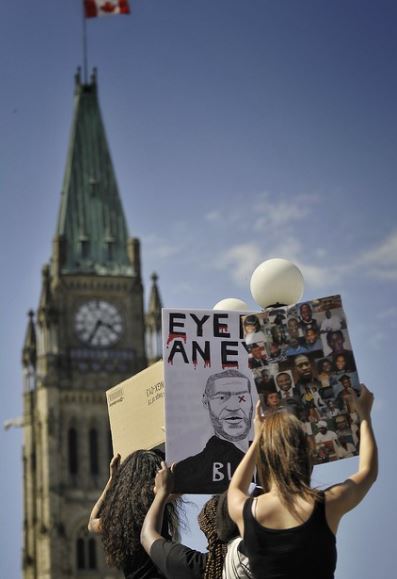
Between 35 to 65 per cent of Black, racialized, and Indigenous Canadians reported that their race or ethnicity has made it harder to succeed in life. Conversely, 45 per cent of white respondents indicated their race or ethnicity has made success easier.
Canadian racism is sometimes called ‘polite’ and is characterized by microaggressions, but that is a misnomer. Words like that are used to deflect criticisms and differentiate Canada from the United States, says Henry, though she does see similar ideologies and motivations.
“Taking a closer look at some of the mechanisms that have been in place and the practices — what undergirds them is that commonality of anti-blackness,” she said.
Henry argues that we can’t continue blindly upholding the idyllic vision of Canada as a multicultural paradise.
“If people want a society where we can embrace identifiers like ‘multicultural’ or ‘diverse,’ that requires a real critical lens and understanding of the realities of Canadians.”
Henry believes that the key to improved race relations is acknowledging the truth and envisioning something better for Canada, then working towards that.
The Ugly Truth About Racism
The cumulative toll of experiencing racism on a regular basis can be exhausting. Racism is considered a socioeconomic determinant of health and has been proven to damage racialized people’s mental and physical well-being.
In some cases, incidents occur that throw the reality of racism in Canada into the faces of people who may have been unaware, or unwilling, to admit it.
Recently, we’ve seen various racialized communities suffer trauma following acts of hatred and violence. Less than two weeks ago, a man from London, Ontario targeted a Muslim family out for a walk, ramming them with his car. Four of the five family members were killed in the attack, and the 20-year old assailant was charged with terrorism.
Throughout the pandemic, more than half of Asian-Canadians have reported experiencing discrimination. In Vancouver, hate crimes against East Asians increased 717 per cent from 2019 to 2020, according to the Vancouver police board. Then there was the horrific discovery of the remains of 215 Indigenous children in an unmarked grave near a residential school in Kamloops. Henry described the unearthing of the bodies as “just a sliver of what the realities of Canada’s beginnings are.”
“All of those historical and colonial realities should force everyone to want to deal with those in order to come to some common understanding and agreement of what Canada should be,” she said.
Multiculturalism Isn’t Enough
The existence of Canada proves that it’s possible to have a multicultural society but still have people who are subjected to racism. The survey results and recent news are a testament to that. Henry thinks that it’s possible to critique Canada and demand better while simultaneously appreciating the opportunities that living here provides.
She believes the key to improving race relations in Canada is centering around justice and equity for everyone. “Anything outside of that would be quite superficial,” she argues.
In order to create improved race relations in Canada, Henry says interpersonal relationships with people of different ethnicities is not enough. Henry urges people who are “genuinely concerned” about improving race relations to pay close attention to the conversations they’re having within their social groups.
“Are you paying attention to those things and trying to help address those systemic issues so that when we meet, in whichever forum and whatever space, that things are improved?” she asks.
Marcus is a poet, editor and freelance journalist based in Toronto. He currently works with New Canadian Media as an Editor and as a Freelance Writer for ByBlacks.com, The Edge: A Leader's Magazine and The Soapbox Press.

